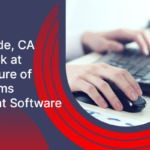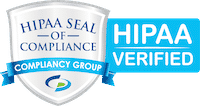How Claim Management Companies Can Enhance Their Practices
October 18, 2024
Accurate and effective claim management is essential for businesses in various sectors in today’s fast-paced business world. The difficulties in managing claims may be overwhelming, affecting insurance companies that handle policyholder claims and healthcare providers that process medical claims.
But with cutting-edge technology, claims management software has become a potent tool for improving accuracy and streamlining procedures. Let’s examine the top five ways claims management software improves accuracy and productivity.
Automation of Manual Tasks
Claims management software has become increasingly prevalent in recent years, mainly due to its ability to significantly improve the efficiency and accuracy of claims processing within organizations.
One of the key benefits of this type of software is its capacity to automate manual operations that are traditionally prone to errors and time-consuming.
For example, claims management software can automate the process of gathering relevant data from multiple sources and entering it into the system, thereby replacing the need for manual data input. This reduces the likelihood of human error and frees up claims specialists to spend more time on other critical tasks.
Furthermore, this software is designed to automate workflow procedures, ensuring that claims follow a predetermined course from submission to settlement. This eliminates delays and bottlenecks, allowing for prompt and efficient claims processing.
By automating repetitive operations such as document production, notifications, and approvals, organizations can reduce the risk of errors and ensure consistency in their claims processing. This can ultimately lead to increased customer satisfaction, improved regulatory compliance, and lowered costs associated with claims management.
Enhanced Data Accuracy and Integration
In claims management, data accuracy is crucial since errors can cause delays, problems with compliance, and monetary losses.
The integration of claims management software with external repositories, internal databases, and third-party systems guarantees that claims specialists have access to current and reliable data.
Claims management software makes a comprehensive perspective of client information and transactional data possible through smooth interaction with other company systems, including ERP (Company Resource Planning) and CRM (Customer Relationship Management).
Through the removal of silos and the facilitation of data exchange between departments, this integration improves decision-making and cooperation.
Moreover, claims management software uses advanced analytics and reporting tools to examine vast amounts of data and spot trends, patterns, and abnormalities.
This enables businesses to identify possible fraud, reduce risks, and maximize the accuracy and efficiency of claims processing operations.
Improved Communication and Collaboration
Efficient claims management necessitates effective communication and teamwork, particularly in establishments with dispersed teams or several parties engaged in the claims procedure.
Regardless of location or time zone, claims experts, adjusters, agents, and other stakeholders may encounter in real-time on a centralized platform made possible by claims management software.
Claims management software enables team members to communicate and share information easily by providing built-in communication features, including chat, email integration, and messages.
This lessens the dependency on labor-intensive, often prone to misunderstanding manual communication techniques like phone calls and emails.
Furthermore, real-time updates, alerts of significant deadlines, and claim status tracking are all made possible by claims management software.
Increased accountability and better customer satisfaction result from this openness, keeping all parties informed and on the same page throughout the claims process.
Compliance and Regulatory Adherence
Organizations in highly regulated sectors, including banking, healthcare, and insurance, place a high premium on regulatory compliance. Regulation non-compliance may result in fines, legal ramifications, and reputational harm.
By enforcing defined procedures, recording audit trails, and producing compliance reports, claims management software assists businesses in maintaining compliance.
Claims management software lowers the possibility of mistakes and guarantees that corporate guidelines and regulatory standards handle claims by automating compliance checks and validations.
This involves following industry-specific rules controlling claims processing procedures in addition to data privacy laws, including HIPAA (Health Insurance Portability and Accountability Act) and GDPR (General Data Protection Regulation).
Through automatic alerts and notifications, claims management software also helps companies keep informed about changes to regulatory requirements.
Companies may reduce risks and preserve their competitive advantage by taking a proactive stance regarding compliance management.
Scalability and Flexibility
Organizations may demand scalable and adaptable systems that can adjust to changing business requirements as their needs for claims management vary as they expand and develop.
Scalability and flexibility are features of claims management software that let businesses add or remove features, alter procedures, and interact with new systems as required.
Claims management software may grow to meet the demands of any business of any size, regardless of how many claims it handles or how many complicated cases it oversees.
For example, cloud-based solutions provide scalability without requiring costly infrastructure expenditures, enabling businesses to pay for the resources they utilize.
Furthermore, due to its versatile and adjustable architecture, businesses may customize claims management software to meet their needs and procedures.
This guarantees that companies can swiftly adjust to modifications in the market, regulations, or business plans, preserving a competitive advantage in the sector.
Conclusion
That concludes this post!
Claims management software is essential for improving accuracy and efficiency in many different businesses. It helps companies streamline operations, reduce risks, and provide outstanding customer experiences by automating tedious tasks, enhancing data accuracy and integration, promoting communication and teamwork, guaranteeing compliance and regulatory adherence, and providing scalability and flexibility. Purchasing claims management software will become more crucial as businesses emphasize digital transformation projects to remain competitive in today’s fast-paced market.
Are you ready to transform your business operations? Explore our claims management software options today and remain ahead of the digital curve!
7 Features Every Online Claim Management System Needs
June 27, 2024What to Look for in Claims Management Software?
May 8, 2024









